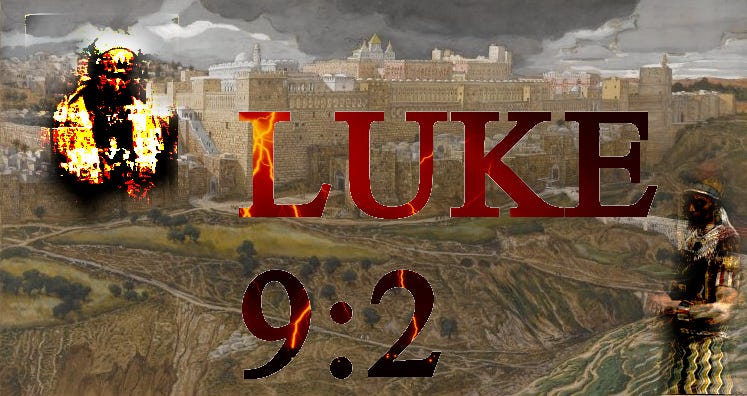The Gospel of Luke 9:2
NJV. and he sent them out to proclaim the kingdom of God and to heal.
Haida. ’waagyaan ’laa hal xanjuud’wagan Saa Naŋ Iitlaagdaas gyaa tlaganhlaa kindayee isgyaan ga st’igagaas ’lagahlee.
and he sent them out = ’waagyaan ’laa hal xanjuud’wagan
’waagyaan = and then
’laa = them
hal = he
xanjuud’wagan = he sent them
xanjuud’wagan has three components:
1. xanjuuda = send
2. -’wa = them
3. -gan = did.
In addition, xanjuuda has two components:
1. xanjuu = travel.
2. -da = make/cause to.
Thus, this sentence has a literal meaning akin to he made (bade) them travel.
And travel they will. Here, St. Paul talks about his experiences:
Three times I was beaten with rods, once I was stoned, three times I was shipwrecked. I spent a night and a day in the open sea. (BSB)
to proclaim the kingdom of God = Saa Naŋ Iitlaagdaas gyaa tlaganhlaa kindayee
Saa Naŋ Iitlaagdaas = God
gyaa = his
tlaganhlaa = campsite
kindayee = to bring the message
Saa Naŋ Iitlaagdaas is the native Haida term for God.
1. saa = above.
2. naŋ = one (who)
3. Iitlaagdaas = is chief.
This is what Keen means by Shanung-itlagadas.
The Haida also have their own term for referring to Jesus, which is Salaanaa.
Europeans first made contact with the Haida on the 18th of July 1774, when they met the expedition of Juan Pérez, which set off from San Blas, Mexico.
and to heal the sick = isgyaan ga st’igagaas ’lagahlee
isgyaan = and
ga = the ones
st’igagaas = (who are) sickly
’lagahlee = to heal
Both isgyaan and ’waagyaan mean and.
The final syllable –gyaan is a Suffix, which means and.
To simplify, the first parts to each word are:
1. ’waa = it/this.
2. is = be/go.
I will need to study this further before I can explain in further detail what is happening here.
KJV. And he sent them to preach the kingdom of God, and to heal the sick.
Haida. ’waagyaan ’laa hal xanjuud’wagan Saa Naŋ Iitlaagdaas gyaa tlaganhlaa kindayee isgyaan ga st’igagaas ’lagahlee.
Haida (Keen). Waigien Shanung-itlagadas gia kingdom-gai alth tla geu gu il gushū-awe un isgien, tl stis il tla-ngīstlāwe un ishin, la il kilistīidāwon.
Keen uses the English word kingdom.
I, on the other hand, use the word tlaganhlaa, which means campsite.
More curious, arguably, is kindayee, which here means to proclaim/to preach.
It has two components:
1. kinda = send a message.
2. -yee = to.
Similar to xanjuuda, kinda has two components (possibly):
1. kiŋ = news
2. -da = cause.
kiŋ can also be spelt king.
No matter how strenuous my efforts, English words continue to sneak into my sentences. This is no doubt God’s way of testing my humility.



